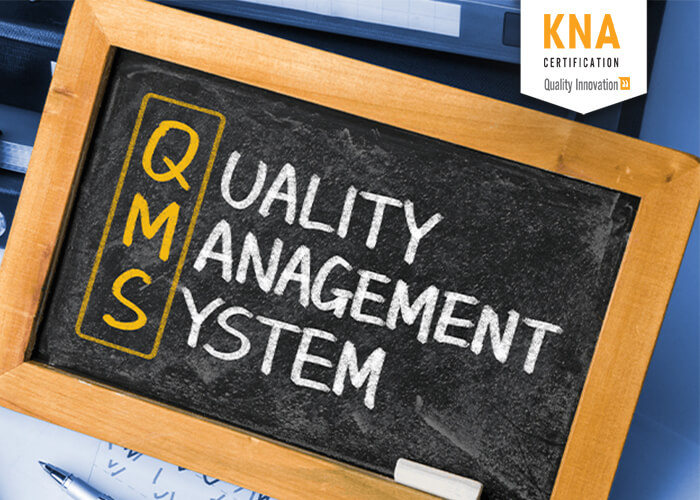The Role of Quality Management System in Business
The role of a quality management system (QMS) in today's business environment cannot be underestimated. With increasing competition and increasing demands from customers, QMS has become an important factor in ensuring the success and survival of an organization. In this article, let's explore more deeply with KNA CERT the important role of the quality management system and its influence on the performance and development of an organization.
WHAT IS A QUALITY MANAGEMENT SYSTEM?
A Quality Management System (QMS) is a set of processes, policies, standards and methods designed to manage and control quality within an organization. It includes activities that ensure that an organization's products or services meet quality requirements and customer requirements.

Definition of quality management system
The main goal of a QMS is to create an effective working environment where processes and regulations are applied to control, ensure and improve quality. QMS are often based on international standards such as ISO 9001 (International Standard for Quality Management) to define important requirements and principles.
ROLE OF QUALITY MANAGEMENT SYSTEM
Quality assurance
The role of the quality management system is to ensure that the product or service meets established quality requirements. It ensures that the manufacturing process or service delivery is performed consistently, reliably and on time.
Continuous improvement
A quality management system encourages continuous improvement by identifying opportunities to enhance performance and quality. It provides the basis for measuring performance, identifying problems and applying appropriate improvement measures.

The quality management system plays an important role in the company's development
Build customer trust
By adhering to a quality management system, an organization demonstrates its commitment to quality and instills customer confidence. This helps build long-term relationships, increasing trust and appreciation from customers.
Meet legal and regulatory requirements
A quality management system helps ensure that an organization complies with legal and regulatory requirements related to quality. It provides a legal framework and processes to ensure that the organization complies with standards and regulations related to product and service quality.
Enhance efficiency and performance
Quality management systems help improve organizational efficiency and performance. By applying quality processes and standards, organizations can enhance production processes, reduce errors and waste, increase work efficiency and increase customer satisfaction.
Building a culture of quality
A quality management system is not just a set of tools and processes, but also a part of the organizational culture. It encourages quality awareness and quality responsibility from all members of the organization. By building a culture of quality, organizations can achieve commitment and collaboration to improve quality and achieve sustainable success.
BUILDING A QUALITY MANAGEMENT SYSTEM: IS IT DIFFICULT?
Here are some challenges that organizations may encounter when implementing a Quality Management System (QMS):
Define Clear Objectives and Scope: To build an effective QMS, organizations need to clearly define the objectives and scope of the system. This requires a deep understanding of the processes and activities of the organization, as well as the commitment of stakeholders.
Cultural and Attitude Shift: Successfully establishing a QMS requires a cultural and attitude shift among all employees in the organization. This can be challenging as many may not be accustomed to adhering to quality processes and regulations.
Training and Employee Engagement: For QMS to operate effectively, employees need training on quality and their roles in maintaining and improving the QMS. Active participation of all employees in the implementation and maintenance of QMS is also a crucial factor.
Record-keeping and Data Monitoring: Building a QMS requires the organization to have the capability to record and monitor quality-related data. This may necessitate investment in management information systems and related technology.
Continuous Evaluation and Improvement: QMS needs continuous evaluation and improvement to ensure effectiveness and compliance with quality requirements. This requires commitment and investment from the organization to conduct ongoing assessments and process improvements.

It is necessary to train employees to be able to build an effective and long-lasting QMS system
Although there may be initial difficulties, building an effective and sustainable quality management system is a process worth the effort for organizations. With the role of the quality management system as mentioned above, organizations will receive many practical benefits thanks to QMS.
Hopefully after reading this article, your business will partly understand "The role of the quality management system". For guidance on building a quality management system according to international standards, please contact KNA CERT at Hotline: 0968.038.122 or Email: salesmanager@knacert.com






